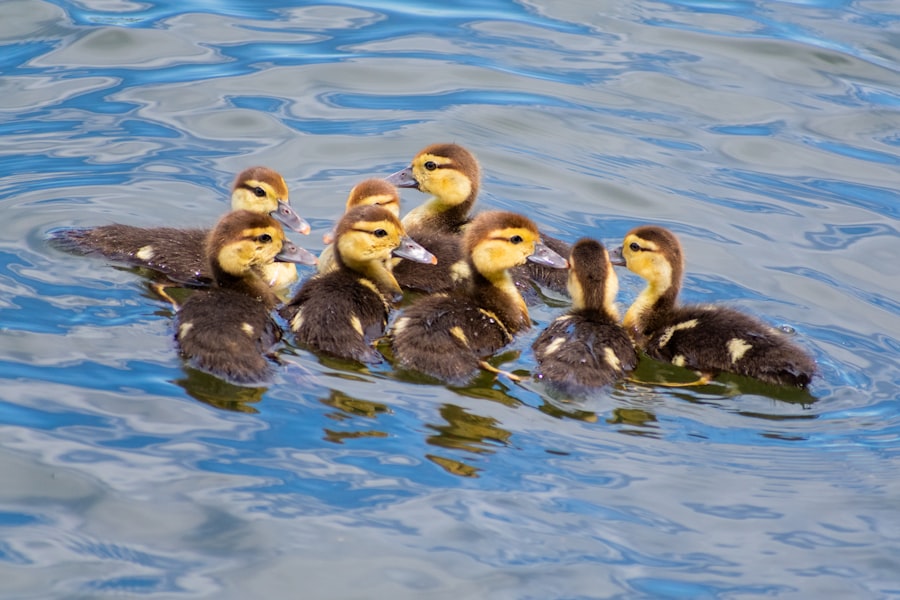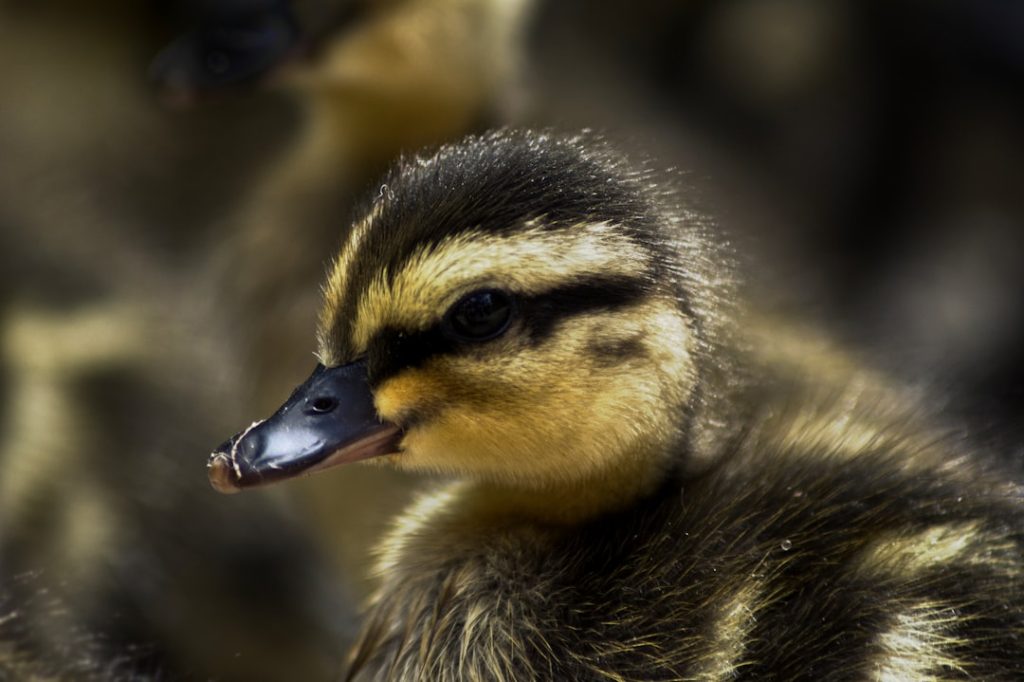When it comes to purchasing baby ducks, choosing a reputable breeder is of utmost importance. A reputable breeder will ensure that the ducks are healthy, well-cared for, and have been bred in a humane and ethical manner. By selecting a reputable breeder, you can be confident that you are getting a high-quality and well-socialized duck that will thrive in its new environment. Additionally, reputable breeders often have extensive knowledge and experience in duck breeding, which can be invaluable when it comes to selecting the right duck for your needs.
Furthermore, choosing a reputable breeder also ensures that you are supporting ethical and responsible breeding practices. Reputable breeders prioritize the health and well-being of their ducks, and often go above and beyond to provide them with the best care possible. By purchasing from a reputable breeder, you are contributing to the promotion of ethical breeding practices and the betterment of the duck breeding industry as a whole. Overall, the importance of choosing a reputable baby ducks breeder cannot be overstated, as it not only ensures the well-being of the ducks but also supports ethical breeding practices.
Table of Contents
- 1 Understanding the Breeding Process for Baby Ducks
- 2 The Benefits of Purchasing Baby Ducks from a Professional Breeder
- 3 Tips for Selecting the Right Baby Ducks Breeder
- 4 The Care and Health Considerations for Baby Ducks from Breeder
- 5 The Role of Ethical Practices in Baby Ducks Breeding
- 6 The Future of Baby Ducks Breeding: Trends and Innovations
- 7 FAQs
Key Takeaways
- Choosing a reputable baby ducks breeder is important for ensuring the health and well-being of the ducks.
- Understanding the breeding process for baby ducks can help consumers make informed decisions about their purchase.
- Purchasing baby ducks from a professional breeder can provide assurance of quality and proper care.
- When selecting a baby ducks breeder, consider factors such as reputation, experience, and ethical practices.
- Care and health considerations for baby ducks from a breeder include proper housing, nutrition, and veterinary care.
Understanding the Breeding Process for Baby Ducks
The breeding process for baby ducks is a complex and intricate one that requires careful planning and attention to detail. It begins with selecting healthy and genetically sound parent ducks that possess desirable traits such as good temperament, strong immune systems, and high egg production. Once the parent ducks have been selected, they are housed in a suitable environment where they can mate and lay eggs. The eggs are then collected and placed in an incubator where they are carefully monitored for temperature and humidity levels. After an incubation period of approximately 28 days, the ducklings hatch and are carefully cared for by the breeder.
It is important to note that the breeding process for baby ducks requires a deep understanding of genetics, animal husbandry, and avian health. Breeders must be knowledgeable about proper nutrition, disease prevention, and socialization techniques in order to ensure that the ducklings grow up to be healthy and well-adjusted. Additionally, breeders must also be prepared to provide adequate housing, veterinary care, and socialization opportunities for the ducklings as they grow. Overall, understanding the breeding process for baby ducks is essential for anyone considering becoming a breeder or purchasing ducks from a breeder.
The Benefits of Purchasing Baby Ducks from a Professional Breeder
There are numerous benefits to purchasing baby ducks from a professional breeder. Professional breeders have extensive knowledge and experience in duck breeding, which means they can provide valuable guidance and support to new duck owners. They can offer advice on proper care, nutrition, and housing requirements for the ducks, as well as help troubleshoot any issues that may arise. Additionally, professional breeders often have a wide variety of duck breeds available, allowing buyers to select ducks that best fit their needs and preferences.
Furthermore, purchasing from a professional breeder ensures that the ducks have been well-cared for and are in good health. Professional breeders prioritize the well-being of their ducks and take great care to provide them with proper nutrition, veterinary care, and socialization opportunities. This means that buyers can have confidence in the health and quality of the ducks they are purchasing. Additionally, professional breeders often provide ongoing support to buyers after the purchase, offering resources and advice to help ensure the long-term health and happiness of the ducks. Overall, purchasing baby ducks from a professional breeder offers numerous benefits, including access to expert knowledge, a wide variety of breeds, and assurance of good health and care.
Tips for Selecting the Right Baby Ducks Breeder
When it comes to selecting the right baby ducks breeder, there are several important factors to consider. First and foremost, it is crucial to research potential breeders thoroughly. Look for breeders with a good reputation, positive customer reviews, and a commitment to ethical breeding practices. Additionally, consider visiting the breeder in person if possible to see firsthand how the ducks are cared for and housed.
It is also important to inquire about the breeder’s experience and knowledge in duck breeding. Ask about their breeding practices, housing conditions, and health care protocols for the ducks. A reputable breeder should be able to provide detailed information about their breeding program and demonstrate a deep understanding of duck husbandry.
Furthermore, consider the variety of duck breeds available from the breeder. A good breeder will offer a diverse selection of breeds and be able to provide guidance on selecting the right duck for your needs. Finally, consider the breeder’s ongoing support and resources for duck owners. A reputable breeder should be willing to offer guidance and support after the purchase to ensure the long-term health and happiness of the ducks. By considering these tips when selecting a baby ducks breeder, you can ensure that you are purchasing from a reputable and ethical source.
The Care and Health Considerations for Baby Ducks from Breeder
When purchasing baby ducks from a breeder, it is important to consider their care and health needs. Ducklings require specific care in terms of housing, nutrition, socialization, and veterinary care in order to thrive. It is crucial to ensure that the breeder has provided proper housing conditions for the ducklings, including access to clean water for swimming, appropriate bedding materials, and protection from predators.
Additionally, nutrition is a key consideration for the health of baby ducks. It is important to inquire about the diet that the ducklings have been raised on and whether they have been provided with appropriate nutrients for growth and development. Furthermore, socialization is important for young ducks to ensure they develop good temperament and behavior. Inquire about how the breeder has socialized the ducklings and whether they have been exposed to different environments and experiences.
Finally, veterinary care is essential for ensuring the health of baby ducks from a breeder. Inquire about any vaccinations or health checks that have been performed on the ducklings, as well as any ongoing health care recommendations from the breeder. By considering these care and health considerations when purchasing baby ducks from a breeder, you can ensure that you are providing a healthy and happy environment for your new ducks.
The Role of Ethical Practices in Baby Ducks Breeding

Ethical practices play a crucial role in baby ducks breeding. Ethical breeders prioritize the health and well-being of their ducks above all else, ensuring that they are provided with proper nutrition, housing, socialization, and veterinary care. Additionally, ethical breeders are committed to responsible breeding practices that prioritize genetic diversity, sound temperament, and overall welfare of the ducks.
Furthermore, ethical breeders are transparent about their breeding practices and are willing to provide information about their program to potential buyers. They prioritize honesty and integrity in their interactions with customers and are committed to providing ongoing support and resources for duck owners. By supporting ethical practices in baby ducks breeding, buyers can contribute to the betterment of the industry as a whole and ensure that ducks are bred in a humane and responsible manner.
Overall, ethical practices are essential in baby ducks breeding to ensure that ducks are healthy, well-cared for, and bred in a responsible manner. By supporting ethical breeders, buyers can have confidence in the quality and welfare of the ducks they are purchasing.
The Future of Baby Ducks Breeding: Trends and Innovations
The future of baby ducks breeding is an exciting one with numerous trends and innovations on the horizon. One notable trend is the increasing popularity of backyard duck keeping, which has led to a growing demand for diverse duck breeds with unique traits and characteristics. This trend has led to an increased focus on preserving rare duck breeds through responsible breeding practices.
Additionally, advancements in genetics and avian health care are driving innovations in baby ducks breeding. Breeders are increasingly utilizing genetic testing to ensure sound breeding practices that promote genetic diversity and overall welfare of the ducks. Furthermore, advancements in veterinary care are leading to improved health monitoring and disease prevention strategies for baby ducks.
Another trend in baby ducks breeding is the growing emphasis on environmental sustainability. Breeders are increasingly implementing eco-friendly practices in their operations to minimize environmental impact while providing high-quality care for their ducks. This includes sustainable housing materials, energy-efficient practices, and responsible waste management strategies.
Overall, the future of baby ducks breeding is marked by exciting trends and innovations that prioritize responsible breeding practices, genetic diversity, environmental sustainability, and overall welfare of the ducks. As these trends continue to evolve, buyers can look forward to accessing diverse duck breeds that have been bred with care and consideration for their health and well-being.
These developments in baby duck breeding are also likely to result in ducks that are better suited to various environments and purposes, whether for egg production, meat, or as pets. Additionally, advancements in breeding techniques and technology may lead to the development of new duck breeds with desirable traits such as disease resistance, improved feed conversion, and enhanced reproductive performance. As a result, consumers can expect to see a wider range of options when it comes to selecting ducks for their specific needs and preferences. Overall, the future of baby duck breeding holds promise for both the ducks themselves and those who raise and care for them.
If you’re a baby duck breeder, you know the importance of providing a safe and comfortable environment for your feathered friends. While you focus on the well-being of your ducks, it’s also essential to consider the housing and living conditions for your other poultry. Poultry Wizard offers a helpful article on chicken coop run plans that can provide valuable insights into creating a suitable living space for your ducks and chickens alike. Understanding the best practices for coop design and maintenance can contribute to the overall health and happiness of your flock.
FAQs
What is a baby ducks breeder?
A baby ducks breeder is a person or business that specializes in breeding and raising baby ducks for sale. They may breed ducks for various purposes, such as pets, egg production, or meat.
What do baby ducks breeders do?
Baby ducks breeders are responsible for selecting and breeding ducks with desirable traits, providing proper care and nutrition for the ducklings, and ensuring they are healthy and well-socialized before they are sold to customers.
What are the common breeds of baby ducks bred by breeders?
Common breeds of baby ducks bred by breeders include Pekin, Khaki Campbell, Indian Runner, and Muscovy ducks. These breeds are popular for their egg-laying abilities, meat production, or as pets.
How can I find a reputable baby ducks breeder?
To find a reputable baby ducks breeder, you can research online, ask for recommendations from other duck owners, or visit local agricultural fairs and shows where breeders may showcase their ducks. It’s important to choose a breeder who prioritizes the health and welfare of their ducks.
What should I consider before purchasing baby ducks from a breeder?
Before purchasing baby ducks from a breeder, consider the purpose for which you want the ducks (e.g., pets, eggs, meat), the space and resources you have available to care for them, and the breed that best suits your needs. Additionally, ensure that the breeder follows ethical and humane breeding practices.
Meet Walter, the feathered-friend fanatic of Florida! Nestled in the sunshine state, Walter struts through life with his feathered companions, clucking his way to happiness. With a coop that’s fancier than a five-star hotel, he’s the Don Juan of the chicken world. When he’s not teaching his hens to do the cha-cha, you’ll find him in a heated debate with his prized rooster, Sir Clucks-a-Lot. Walter’s poultry passion is no yolk; he’s the sunny-side-up guy you never knew you needed in your flock of friends!







